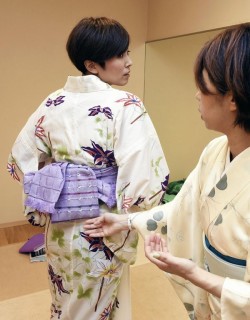Loading
Search
▼ Premium Friday Reaches Crossroads
- Category:Event
TOKYO (Jiji Press) — Premium Friday, a nationwide campaign to encourage people to leave work early on the last Friday of every month and spur consumer spending, faces a crucial moment a half year after its splashy debut.
Only a small number of companies have managed to establish the practice of departing work early among employees, while operators of department stores and amusement facilities are running out of ideas for services to attract visitors on the designated Fridays.
Major travel agency H.I.S. Co. used to feature the campaign on its website, but the post is now difficult to locate.
“With many people busy at the end of the month, not a lot of people go on holiday because of Premium Friday,” a company official said. The official questioned the effectiveness of the government-backed campaign.
Yomiuri Land Co., which operates an amusement park, sold discount tickets only for the first Premium Friday on Feb. 24.
An air of disappointment hangs over the department store sector, which has seen competition to provide different services such as events and discounts for early evening visitors.
“Few people leave work early and the effect [of the initiative] has not been great,” said Shigeki Yamazaki, managing director of the Japan Department Stores Association.
Some businesses, however, have enjoyed benefits from the campaign.
For example, customers increased at izakaya eateries specializing in tuna dishes operated by Watami Co., which cut prices in early evenings.
Suntory Beer Ltd., which has actively promoted drinking at home, saw higher beer sales.
But sources in the food service industry said it was unclear whether the increased sales were worth the cost.
According to the Economy, Trade and Industry Ministry, slightly over 500 companies, mainly big businesses, allow their workers to leave work early.
An official at major confectionery maker Morinaga & Co. said that its system to let workers depart early has led to improved productivity, as how to work was reviewed.
On the other hand, it is hard for many small companies outside Tokyo and other big cities to introduce such a system. The movement has not spread throughout Japan.
“Improvements are needed to enable [workers] to take time off flexibly, not only on busy days at the end of the month,” Toshihiro Nagahama, senior economist at the Dai-ichi Life Research Institute, said, warning that the campaign will “fizzle out” unless such a measure is taken.
A public-private promotion council set up for the initiative plans to continue promotional activities.
Akio Mimura, chairman of the Japan Chamber of Commerce and Industry, however, said it is time to “make an assessment” now that the campaign has entered the sixth month.
Only a small number of companies have managed to establish the practice of departing work early among employees, while operators of department stores and amusement facilities are running out of ideas for services to attract visitors on the designated Fridays.
Major travel agency H.I.S. Co. used to feature the campaign on its website, but the post is now difficult to locate.
“With many people busy at the end of the month, not a lot of people go on holiday because of Premium Friday,” a company official said. The official questioned the effectiveness of the government-backed campaign.
Yomiuri Land Co., which operates an amusement park, sold discount tickets only for the first Premium Friday on Feb. 24.
An air of disappointment hangs over the department store sector, which has seen competition to provide different services such as events and discounts for early evening visitors.
“Few people leave work early and the effect [of the initiative] has not been great,” said Shigeki Yamazaki, managing director of the Japan Department Stores Association.
Some businesses, however, have enjoyed benefits from the campaign.
For example, customers increased at izakaya eateries specializing in tuna dishes operated by Watami Co., which cut prices in early evenings.
Suntory Beer Ltd., which has actively promoted drinking at home, saw higher beer sales.
But sources in the food service industry said it was unclear whether the increased sales were worth the cost.
According to the Economy, Trade and Industry Ministry, slightly over 500 companies, mainly big businesses, allow their workers to leave work early.
An official at major confectionery maker Morinaga & Co. said that its system to let workers depart early has led to improved productivity, as how to work was reviewed.
On the other hand, it is hard for many small companies outside Tokyo and other big cities to introduce such a system. The movement has not spread throughout Japan.
“Improvements are needed to enable [workers] to take time off flexibly, not only on busy days at the end of the month,” Toshihiro Nagahama, senior economist at the Dai-ichi Life Research Institute, said, warning that the campaign will “fizzle out” unless such a measure is taken.
A public-private promotion council set up for the initiative plans to continue promotional activities.
Akio Mimura, chairman of the Japan Chamber of Commerce and Industry, however, said it is time to “make an assessment” now that the campaign has entered the sixth month.
- July 31, 2017
- Comment (0)
- Trackback(0)


